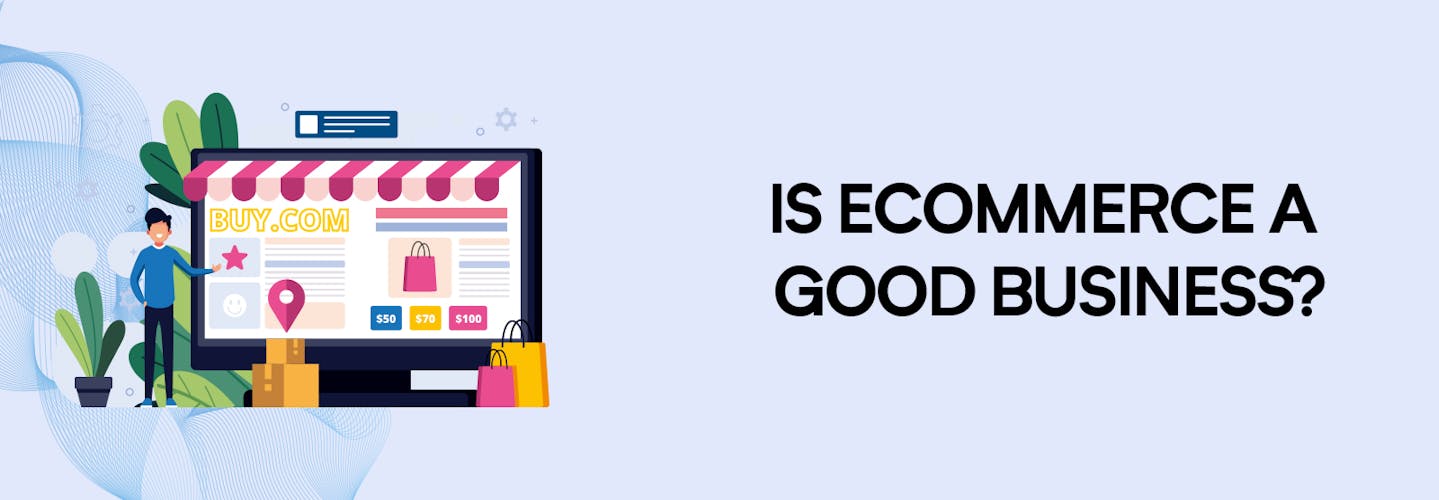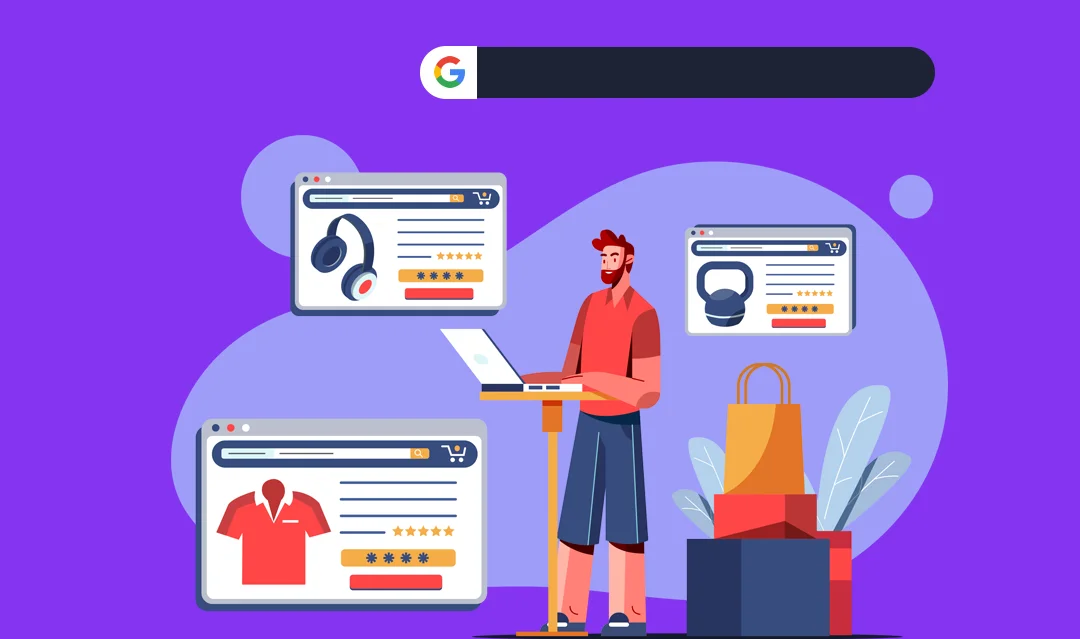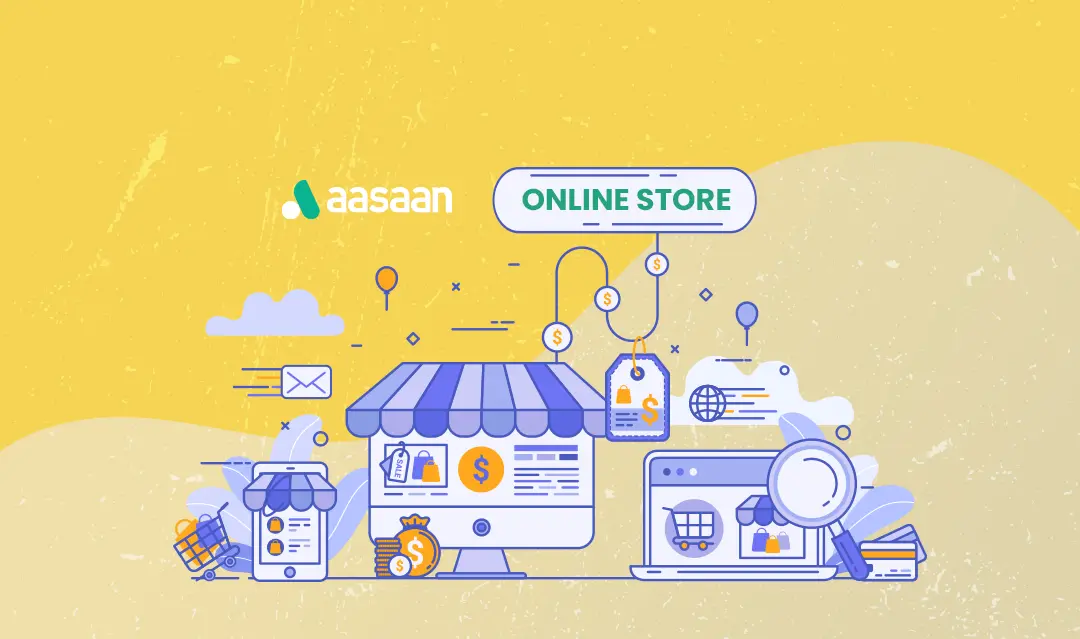
Is Ecommerce a Good Business? Exploring the Potential and Pitfalls of Online Retail
Hello there! If you’ve found yourself here, you’re probably considering venturing into the world of e-commerce.
But the question is, is e-commerce a good business to get into?
Well, let’s find out!
Understanding E-Commerce
In today’s digital age, e-commerce, or electronic commerce, has become a significant part of our lives.
It’s all about buying and selling goods or services using the internet. And it’s not just a passing trend - it’s a fundamental shift in the way we do business.
From small startups to large corporations, businesses of all sizes are leveraging e-commerce to reach a global audience and boost their sales.
What is E-Commerce?
So, what exactly is e-commerce? In simple terms, e-commerce refers to any form of business transaction conducted online.
It’s a business model that allows firms and individuals to buy and sell things over the internet.
There are different types of e-commerce models, each catering to specific needs:
- B2B (business-to-business): This involves companies doing business with each other. For example, manufacturers selling to distributors.
- B2C (business-to-consumer): This is what most people think of when they hear “e-commerce”. Businesses sell to consumers, like when you buy a book from Amazon.
- C2C (consumer-to-consumer): In this model, consumers are in direct deal with each other. Platforms like eBay and Olx have facilitated this type of e-commerce.
The Rise of E-Commerce
The global ecommerce growth rate for 2025 is forecast at 9.4%, bringing global ecommerce sales worldwide to $6.3 trillion.
The trends in e-commerce are also fascinating. From the rise of mobile shopping to the increasing popularity of voice commerce, the e-commerce landscape is constantly evolving, offering new opportunities for businesses.
Read More: Is Ecommerce Legit? Exploring the Reality of Online Commerce

Advantages of E-Commerce
So, why is e-commerce so popular? Well, there are many advantages:
- Global Reach: Unlike traditional brick-and-mortar stores, e-commerce businesses can reach customers worldwide. This significantly broadens the potential customer base and allows businesses to scale quickly.
- Lower Operational Costs: E-commerce businesses generally have lower operational costs compared to physical stores. They can save on rent, utilities, and staffing costs.
- Convenience: E-commerce provides convenience for both businesses and customers. Businesses can operate 24/7, and customers can shop at any time from anywhere.
- Personalization: E-commerce platforms can collect data about customer preferences and behaviors, allowing businesses to offer personalized experiences and targeted marketing.
- Easy to Start: Starting an e-commerce business is relatively easy and requires less capital compared to a physical store.
Disadvantages of E-Commerce
However, it’s not all sunshine and rainbows. Like any business model, e-commerce also has its challenges:
- Technical issues: Websites can crash, and payment systems can fail. This can lead to lost sales and unhappy customers.
- Security and privacy concerns: In the digital age, data is gold. Customers need to trust that you’ll protect their personal and financial information.
- Lack of personal touch: Online shopping can be impersonal. Customers don’t get to touch, feel, or try products before buying, and they miss out on the personal interaction that comes with in-store shopping.
Is Ecommerce a Good Business?

Profitability of E-Commerce
So, is e-commerce a good business? Well, it can be very profitable. For example: Amazon is a very successful e-commerce company that has diversified its revenue streams over the years.
According to its latest quarterly report, Amazon’s net sales increased 15% to $127.1 billion in Q3 2022, up from $110.8 billion in the third quarter of 2021**.** Some of the main drivers of its growth are its cloud computing service AWS, its advertising business, and its Prime membership program.
For 2023 and beyond, Amazon’s revenue is expected to continue growing at a high rate. According to one forecast, Amazon’s gross revenue could more than double to exceed $780 billion by 2023, driven by AWS, ads, and Prime.
Another forecast projects that Amazon’s retail e-commerce sales worldwide will reach $746.22 billion in 2023. Additionally, Amazon is expected to generate $491 billion in new e-commerce sales from 2023 to 2027, making e-commerce its primary channel for sales growth.
But remember, success doesn’t come overnight. It requires a well-thought-out business plan, hard work, and patience.
Read More: From Clicks to Cash: Can E-commerce Make You Rich?
Challenges in E-Commerce
Running an e-commerce business can be tough. Here are some challenges you might face:
- Competition: The ease of starting an e-commerce business means that competition is fierce. Standing out among the multitude of online stores can be difficult.
- Trust Issues: Building trust with customers can be challenging, especially for new e-commerce businesses. This is due to concerns about data privacy and the quality of products.
- Logistics: Managing inventory and ensuring timely delivery can be complex, especially when dealing with international orders.
- Customer Service: Providing excellent customer service can be more challenging in an online environment where direct interaction with customers is limited.
- Technical Issues: E-commerce businesses are reliant on technology, which can lead to issues such as website downtime or payment processing errors.
How to Start an E-Commerce Business ?

Starting an e-commerce business can be an exciting venture. But where do you start? Here are some steps to consider:
1. Choose the Right Product or Service
The first step in starting an e-commerce business is deciding what you’re going to sell. This might seem simple, but it’s a crucial decision that can make or break your business. Here are some tips:
- Find a product or service you’re passionate about: Running a business requires a lot of time and effort. If you’re passionate about what you’re selling, it won’t feel like work.
- Identify a market need: Is there a demand for your product or service? Conduct market research to find out. You can use online tools, surveys, and social media to gather information.
- Consider the competition: Who are your competitors? What are they offering, and how can you differentiate your product or service?
2. Build an E-Commerce Website
Your e-commerce website is your online storefront. It’s where customers will browse your products, make purchases, and interact with your brand. Here’s what you need to consider:
- User-friendly design: Your website should be easy to navigate. If customers can’t find what they’re looking for, they’ll leave.
- Attractive and professional look: First impressions matter. Your website should look professional and reflect your brand.
- Security: Online shoppers need to trust that their personal and financial information is safe. Make sure your website is secure.
Read More: 10 Easy Steps to Grow Your Small Business
3. Marketing and Customer Service
Attracting and retaining customers is crucial for the success of your e-commerce business. Here’s how you can do it:
- Marketing strategy: Use SEO, social media marketing, email marketing, content marketing, and paid advertising to reach your target audience.
- Customer service: Provide excellent customer service. Respond to customer inquiries promptly, resolve issues quickly, and make sure your customers are satisfied with their shopping experience.
Starting an e-commerce business can be challenging, but it’s also an exciting journey. With the right product or service, a user-friendly website, and a solid marketing strategy, you can build a successful e-commerce business. Good luck!
Importance of Online Stores in Today’s Market
As our lives become increasingly digital, online stores play a crucial role in sustaining businesses and driving growth. The benefits they provide to both businesses and consumers include:
- Greater access to international markets
- Cost savings from reduced overheads
- Detailed insights on customer behaviors and preferences
- Enhanced customer support with chatbots and 24/7 services
- Quick and efficient updates to inventory and product listings

Future of E-Commerce
The e-commerce industry is constantly evolving, and staying ahead of the trends is crucial for success. Some emerging trends include:
- Mobile Commerce: With the increasing use of smartphones, mobile commerce is expected to dominate the e-commerce landscape.
- Artificial Intelligence and Machine Learning: These technologies are being used to personalize customer experiences, predict buying behaviors, and automate customer service.
- Sustainability: As consumers become more environmentally conscious, e-commerce businesses that prioritize sustainability will likely gain a competitive edge.
- Social Commerce: Selling directly through social media platforms is becoming increasingly popular.
- Voice Commerce: With the rise of smart speakers, voice shopping is expected to become more prevalent.
Conclusion:
In conclusion, the e-commerce industry offers immense potential for growth and success. However, it comes with its challenges and constant evolution.
By staying informed about market trends, focusing on providing exceptional customer experiences, and selecting the right products or services, aspiring entrepreneurs can create thriving online businesses.
As technology continues to advance, the future of e-commerce promises to be exciting and full of new opportunities for businesses to adapt and grow.
FAQ’s:
1. Is it good to do e-commerce business?
Yes, e-commerce can be a lucrative business model due to its global reach, lower operational costs, and the growing trend of online shopping. However, it also comes with challenges such as competition and logistics.
2. What e-commerce business is most profitable?
The profitability of an e-commerce business can depend on various factors, but sectors like fashion, beauty, health and wellness, and electronics often see high profitability due to consumer demand.
3. Is it hard to run an e-commerce business?
Running an e-commerce business can be challenging due to factors like competition, customer trust issues, logistics, and technical issues. However, with proper planning and management, these challenges can be overcome.
4. Is e-commerce worth it in 2025?
Yes, e-commerce is worth considering in 2025. With the ongoing digital transformation and consumer habits shifting towards online shopping, the e-commerce industry is expected to continue growing.
5. Does e-commerce have a future?
Absolutely, e-commerce has a promising future. Trends like mobile commerce, AI and machine learning, sustainability, social commerce, and voice commerce are expected to drive the industry’s growth.








